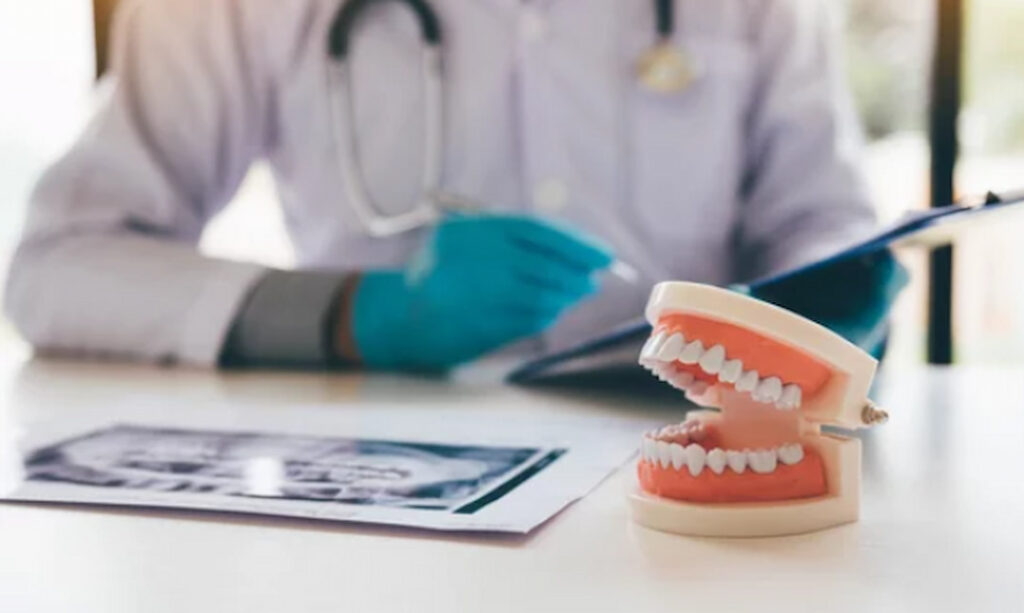
Getting a dental implant is often a serious procedure that should only be done by trained professionals. These procedures involve some of the most important and delicate parts of your body since they involve the gums, teeth, and mouth.
While most dental implant surgeries are successful, there are always potential problems you need to be aware of. If you think you are experiencing any major issues, make sure to contact the dental office right away.
Keep in mind that dental implant failure can happen at the beginning of the procedure or it can happen a long time after. That’s why it’s always important to be aware of how your dental implants feel and to take notice of any differences.
Here are the most common signs of dental implant failure. If you notice any of these signs, don’t hesitate to reach out to the office with your concerns.
Difficulty with Chewing and Biting
This is one of the most common symptoms. It can range from mild to severe. Normal and healthy dental implants should not cause you to have any issues with chewing, eating, or talking.
Dental implants function like normal teeth when they are healthy and properly done. So, if you notice pain during eating this can be a sign something is wrong.
Some people compare the pain to trying to chew when you have a dental cavity. The sooner you get the problem addressed, the sooner it can be solved.

Swollen Gums
Most people will have minor swelling for a few days after the procedure is done. It should go down and not come back. If you notice the swelling reappearing or getting worse, this can be a sign of implantation failure.
Swollen gums that are tender and red are usually a sign of inflammation and infection. Gum infections can spread to other parts of the body and need to be checked and treated immediately.
If a gum infection spreads to the blood, it can cause serious symptoms and issues. Always talk to your dentist if you notice red gums or gums that hurt or appear inflamed.
Any swelling that lasts more than a few days should be reported. Remember that the longer you wait, the more pain and recovery you will have.
Allergic Reactions
Some people can have allergic reactions to the metals in dental implants. Allergic reactions are usually sudden and will happen at the beginning of you have new dental implants. You might notice a loss of taste, swelling, and tingling in the mouth and gums.
In this case, your body is rejecting the implant and you will need to have it removed as soon as possible.

Micro Movements
Some people also receive tooth replacements along with implantations. Sometimes this does not always work for all people though and they will need to go back and have full dental implantation.
You might notice some jaw pain and swelling when the tooth replacement begins to move. Sometimes it’s only noticeable on x-rays though which is why it’s so important to always go to your follow-up appointments.
Shifting or Loose Implant
Dental implants that are done correctly feel like natural teeth. You will never feel like you have something foreign or extra in your mouth. If the implant is not done properly though, you might feel it when you eat or talk. This often happens when the implant is not put onto the gums properly.
You will also notice it is loose or moving around. This needs to be addressed with your dentist right away. Loose or shifting implants can cause damage to your jaw bone and gums if they are left untreated.
Gum Recession
Some people experience gum recession after receiving dental implants. It usually happens if the implant is not positioned properly. It might also happen when there is not enough gum or bone tissue to hold the implant in place.
If you are having a gum recession, you might notice that dental crowns appear unusually long. You might also have painful inflammation around the implant.
Your surgeon can avoid you having problems with this if they implant everything into the right position. You will also need to follow a healthy diet and oral hygiene pattern to make sure you have gums that are healthy enough to receive the implant.
If you do not have enough gum or bone tissue to receive an implant, your dentist will often need to solve this problem before putting in the implant.

Pain and Discomfort
Minor pain is normal during the healing process as your body is adjusting to the new implants. Pain should not be severe thought and it should not last more than a few days. Mild pain can also be solved by taking an over-the-counter painkiller.
Severe pain will not go away when you take painkillers. The pain will also be throbbing and may be constant or come in waves. It might start weeks or months after you had your procedure.
Teeth Grinding
This will often happen months or even years after a dental implant failure. It’s a long-term problem but still very serious. You are more likely to experience teeth grinding if you have missing teeth or misaligned teeth.
Some people only grind their teeth during their sleep so you might not even notice. If you share a bed with someone, they might notice you grinding your teeth. You will also feel pressure along your jaw bone and have pain in the jaw and gums.
Teeth grinding causes too much pressure on the teeth. This can make it hard for the implant to fully integrate with the mouth and your mouth could reject it.
If you think you are teeth grinding or notice signs of teeth grinding, make an appointment with the dentist right away. They will be able to check the dental implant and make sure it’s aligned correctly with the jaw bone.
Late Dental Implant Failures
Some dental implantation failures can occur years after a procedure. These will have long-term health complications. You might notice sudden swelling of the mouth, fever, and chills. You might also notice the dental implant protruding into the sinus cavity if it has been shifting and becomes misaligned.
Nerve and tissue damage can also occur in serious cases. You might notice numbness and tingle in the gums, face, lips, and tongue.

Preventative Care for Implantation Failure
You can minimize the possibility of these problems occurring by making sure you are always practicing good oral hygiene. You need to brush and floss twice a day. You should also be seeing your dentist for regular teeth cleanings.
Here are some other things you can make sure you are doing:
- Stop smoking
- Try not to eat ice or hard candy regularly
- Wear a mouth guard if you are grinding your teeth
- Eat more calcium or take a calcium supplement
- Visit the dentist every six months
- Care for your dental implants just like you would real teeth
- Try not to get immediate tooth replacements after having an implant procedure
Following these tips can make sure your implants stay healthy and decrease the possibility of short-term or long-term problems.
When Do Signs of Dental Implantation Occur?
The good news is that the majority of dental implants do not have any issues. There are only a few that have problems. Knowing the signs of dental implantation failure can ensure you go to the doctor when needed and receive proper follow-up care.
One of the first signs that people have, when there is a failure, is that they start to feel like the implant is no longer an integrated part of their mouth. You might feel tingling or as if there is something foreign in your mouth.
Dental implantation failure symptoms can start a few days to a few months after the procedure. That’s why it’s always important to pay attention to the way your mouth feels.
Make sure you have consultations with the surgeon to make sure you know what to expect. You should also choose an experienced and professional doctor before agreeing to any dental implantation services.

Final Thoughts
Dental implantation failure is rare and only happens in a small number of cases. If you notice any issues though, contact the dentist and the surgeon immediately to make sure all issues are addressed and handled. You can also follow the preventative tips to minimize the possibility of implantation failure.

